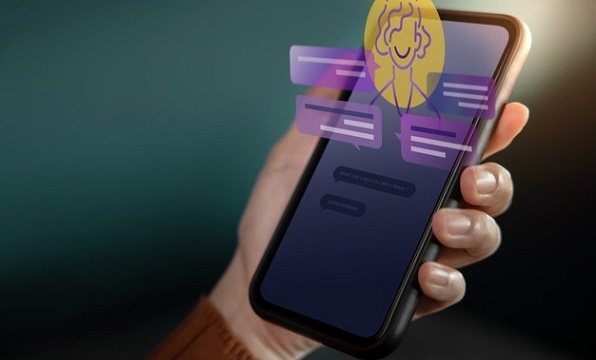Those emotion-based virtual personal assistants (VPAs) that are becoming more and more prevalent lately are not going to go away anytime soon. In fact, they are expected to grow in complexity and sophistication with the next wave of artificial intelligence (AI) technologies. Gartner, Inc. predicts that by 2020, a good 60 percent of device vendors will be using cloud-based AI. And by 2022, a resounding 80 percent of smartphones will be outfitted with on-device AI, which stores and analyzes data locally so it is considered more secure than its cloud-based AI counterpart. Here’s a range of applications to anticipate with the expansion of AI capabilities in smartphones, according to Gartner.Because of AI, a smartphone is all set out to become a virtual extension of its user. The AI-powered smartphone will recognize and preempt its user’s preferences. It will also perform automated tasks as well as make decisions on such tasks according to what it reads from its cameras, sensors, and other data.Less secure and cumbersome password-based or straightforward digital authentication will have to take a backseat because of AI’s deep understanding of distinctive user behavior. This includes unique patterns for swiping, applying pressure points to the smartphone screen, and scrolling.A smartphone run by AI will be able to sense, process, evaluate, and ultimately react to its user’s moods. This is the basis for the emotion-based response of VPAs and other similar conversational AI systems. A savvy application of contextual AI learning is in the automotive safety industry, whereby a smartphone camera can be used to analyze a driver’s fatigue level.Deep-learning AI on smartphones will ensure precision in speech recognition. This means a solid grasp of the intention of the user making the voice command. Additionally, smartphones are expected to have powerful AI capabilities that they can stand in as real-time translators for users traveling to foreign countries.With iOS 11’s ARKit functionality, Apple has paved the way for developers to add and expand AR. Google has done a corresponding move with Android’s ARCore developer tool for adding AR. Both mobile platforms will churn out more and more expansive AR and AI vision in the coming years. What’s great about AR is that it can be used in conjunction with health apps that gather user information and aid in diagnosing diseases like pancreatic and skin cancers.Machine learning by way of multiple sensors and user data capture will enhance the usability and performance of smartphones. For example, an AI-based smartphone will “learn” to run in the background all the various apps that the user frequently launches. That way the apps can be quickly re-launched laterAI-powered smartphones will efficiently collect data that can be used for making unique personal and behavioral profiles. This profiled data can be used to call for assistance, seek protection, and many others. A good application of smartphone AI behavioral profiling is in the car insurance industry, whereby the auto insurance rate can be changed according to driving behavior.With the advancement in smartphone AI image detection and recognition capabilities, any user can easily set up for restriction any objectionable text or multimedia content. This can be also used to help enforce corporate security policies. A company smartphone, for example, that stores classified company data or takes snapshots of restricted facilities will be programmed to send a notification to IT.Aesthetic touches on snapshots taken using AI-powered smartphone cameras will be further adjusted according to user preferences. An application of this smartphone AI capability will be in differentiating between the prevailing preferences in the East and the West. In Western countries, for example, tan skin tones in photographs are generally favored over pale complexions.AI-powered smartphone microphones will have more sensitive and advanced analytics in detecting and analyzing sounds. A good application of this capability is to set the smartphone to detect the snoring of its user. It will then trigger a smart wearable wristband to “instruct” the snoring user to shift from his sleeping position.On the whole, smartphone AI capabilities will grow increasingly sophisticated in the next few years, thus expanding their range of applications. Biometrics and machine learning alone will have radically changed device security technology. Gartner predicts that by 2022, the use of passwords will be nearly phased out and will end up comprising less than 10 percent of all digital authentication options.

Want to learn more about how we can help you?
Schedule a free, no-pressure consultation about your unique use case.


